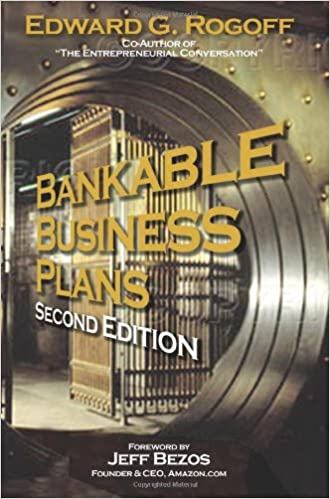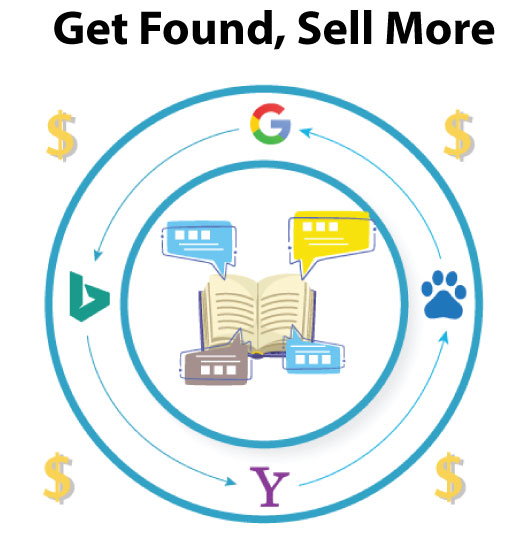Like most authors, I would instead be writing my books than managing websites and handling promotion. And like most authors, I had thought that a publisher would do this for me. A large publisher published the first book I wrote, and I thought that they would handle promotion, enhance the listing on Amazon and other booksellers, and reach out to the schools with programs in which the book might be used. I was so wrong. I soon learned that their idea of marketing was to call me every month and ask me what I had done in the last month to promote the book. When I had the audacity to ask them what they were doing to promote the book, I was told that their responsibility is to keep the book in their catalog. Over time, I learned that there were other negatives of dealing with publishers: they owned the book’s intellectual property, set the pricing, decided whether the book should be hard copy or paperback, and made the decisions on new editions. In other words, they made all the important decisions — but they didn’t do anywhere near the level of promotion and marketing that I felt the book warranted.
I had a headstart in connecting with the Lumos Learning TedBook Technology because I have known the founder of LumosLearning, Mukunda Krishnaswamy, since he started the company. I had shared my frustrations with publishers with Mukunda over the years, and as LumosLearning grew, it developed this TedBook Technology that addressed many of my issues. The overarching benefit of it is that it provides an extremely simple and effective way for me to connect with my readers. When someone buys a book, the author has no way to connect with them to give them updates, invite them to online programs, or sell them the next book. TedBook Technology solves that problem by using a QR code in the front of the book that takes the reader to the TedBook site which has supplemental materials of the author’s choosing and — importantly — collects the contact information on the reader. We all know we are in a data-driven world and this brings that data to the author and puts it under the author’s control.
We all know that a book is just a format for delivering information or entertainment. I love books. They are what I have used all of my life as the main way to learn or be entertained. But they are limited in how they deliver this to readers. They have no video, can’t be updated except by a new edition that requires a large additional purchase, and they are entirely a one-way means of communication. TedBook Technology solves these and many other problems. For my recent book, Bankable Business Plans for Non-Profits, I have interviewed experts in particular aspects of this subject and posted the interviews on the TedBook site. I feel this adds so much to the value of the book. These people share their expertise, tell entertaining stories, and make the book so much more “personal” to the reader. I started with ten half-hour interviews and plan to continue to add more. The interviews can be created by simply recording a Zoom call. There are many other reader “enhancements” that can be created and I will talk about them in upcoming posts.
My book helps readers and their organizations create business plans to start a new non-profit organization or grow an existing one. I have one great example of such a business plan in the book, but I would like to offer readers other examples. Business plans take up many pages and it becomes cumbersome and expensive to put them all in the printed book. Being able to post them on the TedBook site solves this problem. Actually, it solves more than the problem because I can make the sample plans downloadable. Importantly, I can make the financial statement templates available to my readers in various forms, such as different levels of complexity, so they can use them as Excel files to then build their own financial statements and projections. I think there are many applications of this feature to virtually any kind of book. I have often read a fiction book and wondered about what else the author might suggest I read. What did he or she like? What influenced their thinking that went into the book I just read? This is something they could post on the TedBook site.
Perhaps the most powerful tool of the TedBook system is the way it used artificial intelligence (AI) to generate questions and answers about the book. In literally a minute or two, the system generates dozens of specific and relevant questions about the book’s content — and it generates the answers. It does require some editing because some of the questions may be about issues that the author considers too small or not of great interest to readers. Take them out in a second. Some of the answers need editing too, but not that much. This book FAQ list serves multiple functions. It can be used for potential purchasers of the book for them to see if the topics covered are what they are looking for. It can be used to help readers of the book skim the list to see where something they are looking for resides in the book. Most importantly, it is searchable by Google. This means it will increase the number of ways and why Google will direct a search to you and the book, and it will generally raise their rating of the book, pushing it up on the list of search results. I can’t overstate the importance and impact of this.
About Prof. Edward G. Rogoff

Professor and former Dean of the Long Island University. He received a B.A., M.B.A., and Ph.D. From Columbia University where he wrote his thesis under the supervision of Nobel Prize winning economist William Vickrey.


